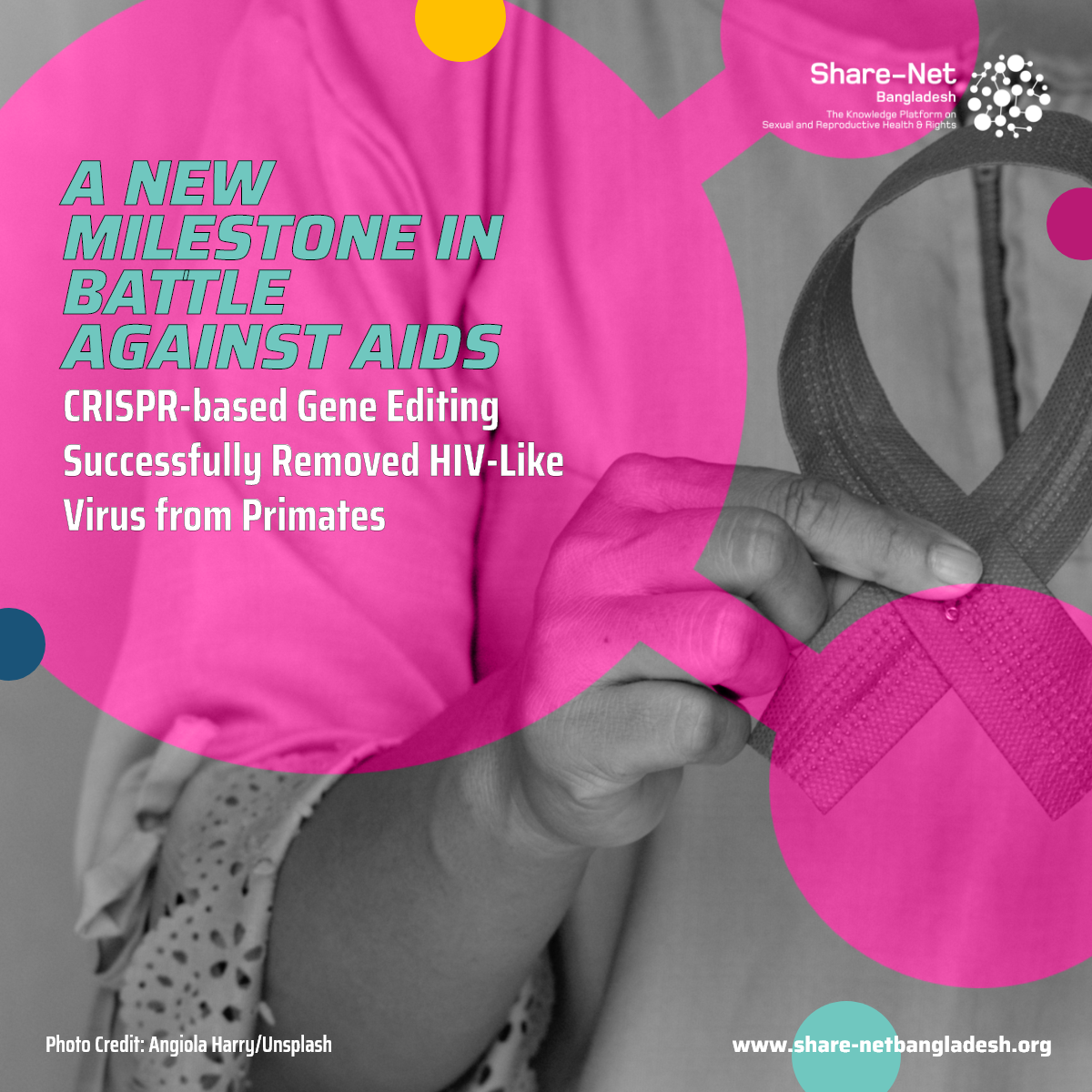A New Milestone In Battle Against AIDS: CRISPR-based Gene Editing Successfully Removed HIV-Like Virus from Primates
A single injection of a CRISPR-based gene-editing therapy has successfully and safely removed SIV—an HIV-like virus—from the genomes of non-human primates, according to a new study by researchers at the Lewis Katz School of Medicine at Temple University. The study, published in Gene Therapy, marks a turning point in HIV cure research and raises hopeful prospects for tackling some of the world’s most persistent sexual and reproductive health and rights (SRHR) crises.
A New Front in the Fight Against HIV/AIDS
For decades, HIV has posed a major global health challenge, particularly in low- and middle-income countries. According to UNAIDS, approximately 39 million people were living with HIV in 2023, with over 1.3 million new infections reported globally. In Bangladesh alone, new HIV cases have been rising steadily in recent years, especially among young people and key populations, highlighting gaps in awareness, testing, and treatment access.
But this new research offers a potentially revolutionary approach. Using a CRISPR-Cas9 gene-editing treatment called EBT-001, researchers successfully eliminated SIV—a simian virus closely related to HIV—from viral reservoirs in rhesus macaques. These are the very reservoirs that allow HIV to hide and survive in human bodies for years, resisting antiretroviral therapies.
“One Injection Could Make a Lifetime of Difference”
“Our study supports the safety and demonstrates in vivo editing of a CRISPR technology aimed at the permanent inactivation of the virus,” said Dr. Kamel Khalili, senior author of the study and Director of the Center for Neurovirology and Gene Editing.
The team, in collaboration with Excision BioTherapeutics, administered EBT-001 via a one-time injection. The gene-editing tool was delivered using an AAV9 viral carrier and targeted the virus integrated within the host’s DNA—essentially cutting it out.
Lead animal researcher Dr. Tricia Burdo emphasised the significance of the findings: “The long timeframe of the study and the use of high doses confirm the safety of EBT-001. Animals not only showed no toxicity—they gained weight and appeared healthier.”
Relevance to SRHR in Bangladesh and Beyond
This innovation directly touches on key SRHR issues, especially the right to health and the need for equitable access to cutting-edge HIV treatment. In places like Bangladesh, where sexual health education is limited and stigma around HIV remains high, such advancements could redefine care and rights for people living with HIV.
This technology also highlights broader rights-based issues: from bodily autonomy to the right to accurate health information. The development of a functional cure could shift the conversation from lifelong management to actual eradication of HIV in individuals.
What Comes Next?
This study laid the groundwork for EBT-101, a human-specific gene-editing treatment now in clinical trials following FDA approval in 2022. The implications are enormous—not just for HIV, but potentially for other chronic viral infections such as herpes and hepatitis B.
Still, the question remains: How accessible will these therapies be, especially in the Global South?
As this science progresses, policymakers, SRHR advocates, and public health agencies must prepare to ensure these technologies reach those most in need.
“This is not just an important milestone for the HIV community,” said Dr. Jennifer Gordon, Senior VP at Excision. “It also moves us closer to gene-editing cures for other viral diseases.”
Source: Lewis Katz School of Medicine

